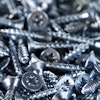WASHINGTON (AP) — Orders for aircraft and autos last month drove demand for long-lasting manufactured goods up in July. Outside those categories, businesses invested less in factory goods.
Overall orders for durable goods rose 4 percent last month, the biggest increase since March, the Commerce Department said Wednesday. Demand for autos and auto parts jumped 11.5 percent, the most in eight years. Aircraft orders, a volatile category, soared 43.4 percent, after falling 24 percent in June.
Excluding transportation goods, orders rose just 0.7 percent. Demand for primary metals increased 10.3 percent, the most since last November. Some of that increase was likely due to higher prices for metals such as copper.
A key category that tracks business investment plans fell 1.5 percent, the biggest drop in six months. That suggests businesses are pulling back on spending. Orders in all other major categories dropped, including computers, electronic goods, and machinery.
Stock futures erased early morning losses after the report was released. Dow Jones futures were relatively flat after being down by as much as 100 points.
A durable good is a product that is expected to last at least three years.
Auto production is rebounding after a slowdown caused by the Japan earthquake. The Federal Reserve reported last week that factory output rose 0.6 percent in July, mostly because of an increase in auto production.
A big order by American Airlines helped boost the aircraft sector. American Airlines ordered 100 new Boeing 737 planes with fuel-efficient engines in July.
Manufacturing has been a key source of economic growth since the recession officially ended in June 2009. But it began to slump this spring, along with the broader economy.
Orders fell in April and June, partly because of supply disruptions stemming from the March 11 earthquake in Japan. And a spike in gas prices earlier this year cut into consumer spending, reducing demand for big-ticket items, such as computers, appliances and furniture.
Several recent reports suggest the sector could be slowing further. A survey by the Federal Reserve Bank of Philadelphia showed that manufacturing in the mid-Atlantic region contracted in August by the most in more than two years. A Richmond Fed survey released Tuesday and a New York Fed survey last week also pointed to slowdowns in those areas, although not as severe as the Philadelphia region.
Economists predict further weakness, even as temporary factors fade. Falling stock prices and fear of another recession may persuade consumers and businesses to hold back on big purchases. That could slow orders for industrial machinery, electronic goods and appliances.
Analysts have been scaling back their forecasts for economic growth for this year and next.
Michael Feroli, an economist at JPMorgan Chase, projects the economy will expand at only a 1 percent annual rate in the second half of the year. That's not much better than the 0.8 percent growth that the government reported for the first half of the year.
The Federal Reserve this month said that it expects weak growth for the next two years. As a result, it said that it plans to keep its short-term interest rate near zero until at least mid-2013.
The Fed has limited options for stimulating growth. And a renewed focus on deficit reduction in Washington, which could result in steep spending cuts or tax increases, could weaken the economy further.
Investors hope that Federal Reserve Chairman Ben Bernanke announces another round of bond purchases on Friday in a highly anticipated speech in Jackson Hole, Wyo. The bond purchases, known as quantitative easing, are designed to keep interest rates low and boost stock prices. But economists don't expect Bernanke to launch any major efforts.


















